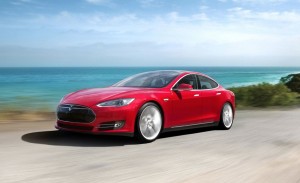More than 160,000 Americans saved themselves $100 million in 2013 by not doing one thing that millions of others had to do: buy gasoline.
According to Union of Concerned Scientists, those drivers saved 45 millions of gasoline last year. Not surprisingly, Californians led the way accounting for nearly half of the savings – $40 million – and reducing emissions of carbon dioxide by 140 thousand tons per year.
The number of plug-in electrics doubled in the U.S. last year to 99,827 vehicles compared with 2012. Again, California led the charge. In fact, 2.5% of the cars sold there in 2013 were plug-ins.
The top sellers were the Chevy Volt, Nissan Leaf and Tesla Model S. Those three vehicles combined to account for two-thirds of the EV sales last year. While the increases are impressive, they are dwarfed by hybrids. Toyota sold more than 234,000 Prius Hybrids last year and the Camry Hybrid was the second-best seller. Ford’s Fusion Hybrid was up 164% in 2013 to claim third place.
(Average ages of vehicles creeps higher this year. For more, Click Here.)
The impact of electric vehicles in America is only going to increase as more EVs are introduced. In 2014, several new models are expected the streets in the U.S., including BMW’s i3 as well as models from Kia, Cadillac and Volkswagen.
(Click Here to get insight on how a single ticket can double insurance premiums.)
One of the knocks on EVs – aside from limited range – is that they are more expensive than their internal combustion counterparts. Part of that is tied to price of the battery.
(To see TDB’s first drive in the 2015 Chevrolet Suburban, Click Here.)
However, Tesla Motors’ proposed Gigafactory may help in that area. If it gets off the ground, it would increase production levels and affordability of batteries could improve significantly, leading to a drop in the overall cost of EVs.


How much did American’s with EVs pay in electricity charges in 2013? When will EV owners be charges road taxes like other commuters?
$100,000,000 divided by 160,000 buyers = $654.00 divided by 12 months = $52.08 per month. That’s equivalent to ONE gas fillup for most vehicles, maybe TWO for a Corolla.
Now what was the average cost of an electric vehicle compared to gas? How much per annum to charge that electric vehicle? Electricity isn’t free at your home, and probably isn’t out on the road. What’s the distance range? What’s the resale value of a higher mileage electric vehicle whose batteries may be nearing the end of their use? What’s the cost of replacement batteries, perhaps more than the vehicle’s book value?
Can anyone estimate the “carbon footprint” of the per hour charge of an EV?
Hi, Tom,
There really is no way to estimate this because it depends on your source of electricity: is it from coal, natural gas, nuke, solar or wind? That all would vary the numbers substantially. I do recall the Union of Concerned Scientists and some other enviro groups cooperating on a rough determination of CO2 emissions by region a couple years ago and you should be able to track that down with a little effort online.
Paul A. Eisenstein
Publisher, TheDetroitBureau.com
So as usual the EV hype is intended to show EVs in a positive light when in fact they aren’t for the most part. We haven’t even discussed the toxic battery production and disposal. Electrical short circuit and fire issues in crashes. Safety hazards to occupants and first responders, etc. You don’t see too much of the realities of EVs reported, just the HYPE.
Eon Musk also runs Solar City solar panel leasing as well as Tesla. The idea is to power the Model S with clean sunlight if you install 10000 watts of solar panels, you could power both you home and you car with the same amount of money you now pay to just electrify you home from your current utility. This fixed lease would also not vo up like your utility bill does every other year.